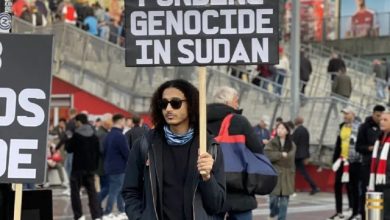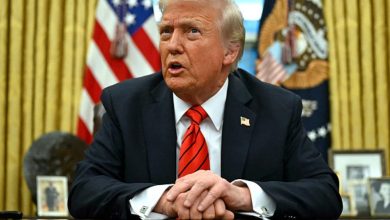The Dark Shadows Behind Saudi Arabia’s Execution of Two Pilots

Watan – The “Fair Observer,” a U.S. website, recently unveiled a disconcerting narrative surrounding Saudi Arabia’s execution of two pilots. This act underscores the Kingdom’s mounting anxieties about potential military insurrections, a sentiment intensified by an increasingly disillusioned army grappling with meager remunerations.
On September 14th, a somber proclamation emanated from the Saudi Ministry of Defense: the execution of Major Majed Al-Balawi and Sergeant Yousuf Al-Azouni, both military pilots. Al-Balawi faced charges of “war treason,” while Al-Azouni confronted accusations of multifaceted treason.

Trusted sources, as cited by the website, intimate that the duo’s refusal to target Yemeni civilians catalyzed their grim fate. Whisperings of recordings, capturing their critiques of Crown Prince Mohammed bin Salman, further muddy the waters. The act of penalizing military personnel for their humanitarian stance is a move few legitimate courts would sanction, suggesting that the treason charges might be a smokescreen.
The underlying motive, the website posits, is to broadcast a stern warning to potential dissenters, ensuring that figures like Al-Balawi and Hassan don’t galvanize an insurgency against the Crown Prince.
Historical Echoes of Dissent
Saudi Arabia’s annals are not devoid of military dissent. In 1969, a significant event unfolded when members of the Saudi Air Force conspired to overthrow King Faisal. Their bold strategy entailed orchestrating an airstrike on the royal palace in Riyadh. The repercussions of this failed coup were severe, resulting in the loss of roughly 2,000 lives, many of whom were high-ranking military officials.

Fast-forwarding to recent times, Mohanned Al-Subyani’s defection to the UK, despite a travel ban, is noteworthy. Al-Subyani, formerly of the Saudi National Guard, unveiled a litany of egregious violations, from detainee abuses to covert smuggling operations.
The Al-Zahrani Defection: A Regime’s Nightmare
The recent defection of Colonel Tariq Al-Zahrani, a linchpin in the Royal Guard, has sent ripples through the establishment. The report suggests that the Crown Prince might have narrowly evaded more direct threats from Al-Zahrani.
Yemen and the Saudi Military Quagmire
The Yemeni conflict, though dormant over the past year, remains a thorn in Saudi Arabia’s side. The Kingdom’s reticence in disclosing military casualties, even after eight years of warfare, is telling. However, the Yemeni conflict isn’t the sole source of military discontent. Rank-and-file Saudi soldiers endure suboptimal conditions, with their remunerations paling in comparison to their Gulf counterparts.
Barriers to a Military-led Revolution
Historical precedents often highlight a disorganized military as a precursor to revolutions. However, the Saudi military landscape presents unique challenges to such an uprising. The omnipresence of military police, ever-vigilant for dissent, is a significant deterrent, as evidenced by the Al-Balawi and Hassan cases.

Furthermore, the diminutive size of the Saudi army, especially when juxtaposed against the expansive internal security apparatus, is a factor. This apparatus, since 2017, has burgeoned to include specialized units, intelligence operatives, and anti-terrorism brigades.
State Security forces, with their superior resources and cutting-edge equipment, further tip the scales. Moreover, the hierarchical communication structure, mandating that all correspondence traverse the Royal Court, stymies any coordinated, large-scale opposition.






